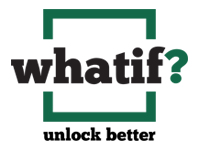Let’s do a quick thought experiment. What matters more to you?
- Excellence or expedience
- Transactions or experiences
- Intensity or endurance
My sense is most readers selected excellence, experiences, and endurance. Individually, we put a premium on values that allow us to make a meaningful contribution and positive impact on others.
OK, let’s do it again. This time answer, what do you measure your people on? What does your organization (really) value? What do your people think matters? What do your clients, customers, and users think matters? I’m certain your answers were different – maybe even a 100%.
There is a mismatch between what we know is right, and what we measure, reward, and shape people’s job experiences and careers on. In conversations with leaders, there’s an awareness and acknowledgement – and a certain amount of anguish – over the tension this mismatch creates. So why do we do it?
In an uncertain and complex operating environment, organizations are challenged to meet short term expectations while trying to be purpose-driven and stakeholder focused. While most agree with the philosophical underpinnings of stakeholder capitalism and supporting initiatives like ESG and DEI, they face stiff headwinds. It’s a big dilemma and one that takes thoughtful consideration to manage. Expedience, intensity, and lots of transactions might have short-term appeal, but eventually, those who play the long game win.
The leader’s challenge is to acknowledge this dilemma and engage stakeholders in meaningful conversations to get better alignment between what we know is right to do and what we do. This will require confidence in their people and organization to deliver and the courage to see it through when headwinds intensify. Getting many fingerprints on the blueprint will help create a foundation for a shared commitment. We just don’t seem to be able to prioritize this in the face of day-to-day pressures. And the environment is only going to get more complex, intense, and challenging. Chat GPT anyone?
What if we devoted just 10% of our time to focus on this. For the typical executive, this means about five hours a week. Let’s be generous and make it four hours. I suspect that if leaders were to spend four hours a week engaging in meaningful conversations on getting better alignment with their people, customers, suppliers, and investors three things would happen. First, the time invested would grow from four hours to much more. Next, they would see stronger, more committed relationships throughout their ecosystem. And afterwards, better results would undoubtedly follow. Excellence of effort aimed at others leads to better relationships, which unlocks better results, leading to more resilient value creation.
I’m reminded of the wonderful quote by Gandhi. First they laugh at you, then they fight you, then you win. Are you up for the fight?
As always, let me know your thoughts.



Clifford
Playing the infinite game creates long lasting experiences that live beyond the creation of foundation by evolving for the good of all involved.